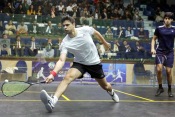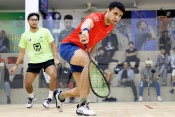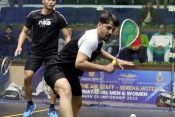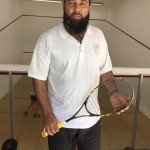Ahsan Ayaz is the hero Pakistan squash needs
Hailing from Peshawar, Ayaz has been crowned national junior champion in most age categories 25 times and won various international tournaments as well
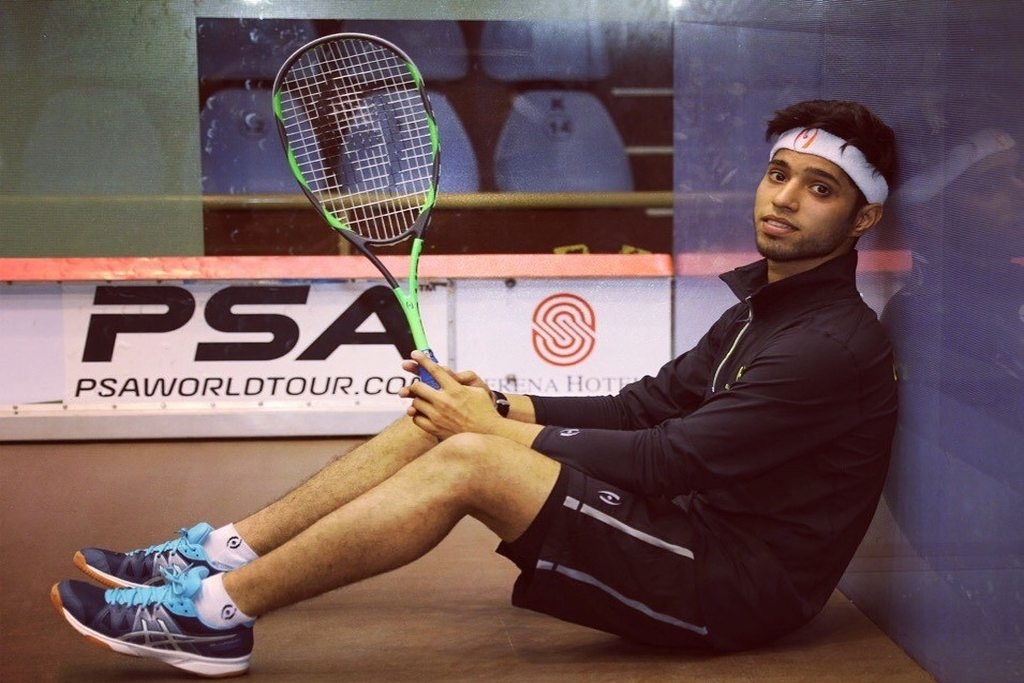
Pakistan squash is on the decline; from being the sport that we excelled in and revelled in, to a sport that is struggling to remain relevant.
Gone are the unbeatable Khans and with them, Pakistan’s dominion over the game. Following Jansher Khan’s defeat in the British Open in 1998, no Pakistani has reached the final of either the British or World Open.
There are eight Pakistani players in the current PSA world rankings and only one of them is in the top 50. However, the list includes talented young players who hope to make it to the top. One of those able names is 20-year-old Ahsan Ayaz.
Hailing from Peshawar, Ayaz has been crowned national junior champion in most age categories 25 times.
Ayaz has won various international tournaments as well, including Professional Squash Association’s (PSA) singles Malaysian Tour-4 (Men’s) Championship title as well as PSA’s ISAM Pro-Open trophy in California, USA. He also became world junior champion in squash in 2016.
Albeit briefly, in March 2018, Ayaz became Pakistan number one. Reminiscing about reaching top rank, Ayaz said:
“It was a dream come true.”
Next on his agenda is to be rated among the best in world squash. Currently world number 421, Ayaz hopes to improve his ranking and reach the top 20.
Ayaz is inspired by former world champion, Egypt’s Amr Shabana, who, like himself, was also a left-handed player. He loves to play the attacking boast shot which he says is a crowd favourite. He also likes to play the volley nick, which is risky but one of the most sought after shots of the game. When played right, it is unstoppable and rewards the player with a winning point.
Largely self-sponsored, Ayaz has been nursing some grievances against the government. Despite an abundance of talent, squash is struggling to retrieve its lost glory. Ayaz blames the almost non-existent infrastructure for the current state of squash in the country. He believes the government needs to do more to support professionals and encourage entry into the sport.
He cites Egypt as an example. Egyptians are setting trends in the game with their attacking style of play and continued success, which has helped further squash in the region.
It is hard to identify exactly when and how Egypt became a superpower in squash but many credit former president Hosni Mubarak for the rise to the top. Mubarak amplified government funding to the sport and launched the Al-Ahram tournament in the country. Others ascribe their interest in squash to having role models such as Ahmad Barada, who have made the game popular.
With some help from the government, Ayaz believes squash can take off once more in Pakistan.
Meanwhile, the 20-year-old has launched his own initiative to aid underprivileged sportspersons in Pakistan. He has launched a foundation which provides financial support to young players.
He hopes to see the day when squash will be all-pervasive like cricket in the country. For now, he is training for his next tournament, with top 20 on his mind.


